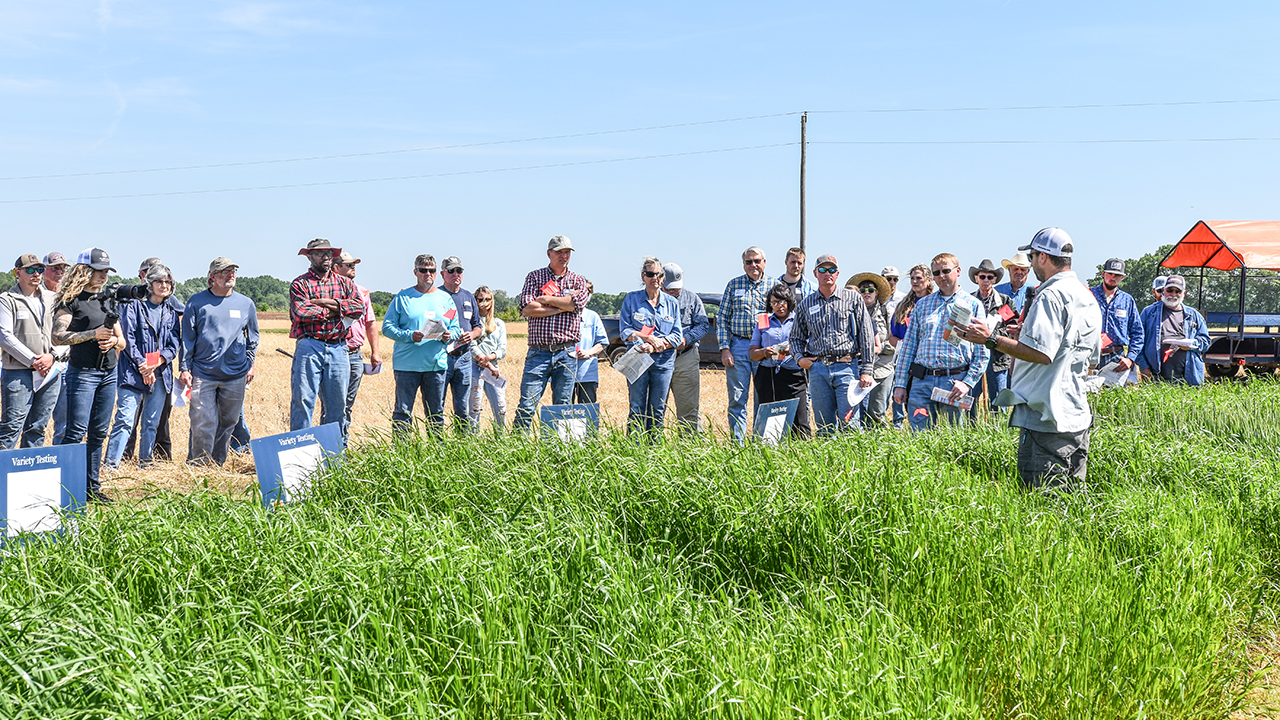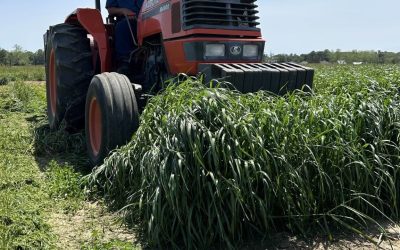Auburn University
Variety Testing Program

Variety selection is the most important decision a farmer can make. If farmers want to be successful, they must ensure that they plant varieties that are well adapted. If a farmer selects the wrong variety, the results can be catastrophic. Typically, farmers do not have the resources to conduct variety trials in addition to their normal growing season activities.
Variety evaluation is also critical to plant breeders, both from universities and industry. Prior to releasing a new variety, these breeders typically evaluate their lines in independent variety trials. This ensures that they have unbiased data from multiple years and locations to support the release of their new variety.
The mission of the Auburn University Variety Testing Program is to provide research-based, unbiased results on the performance of various crop hybrids, cultivars, and varieties to the agricultural community in Alabama. We are intent on conducting these trials in a manner that will result in maximum biological yield through methods common to the top-producing farms in Alabama.
We are committed to providing this information in a timely manner for its use during the decision-making process. The success of the program rests on our ability to help Alabama producers provide a safe, dependable source of food and fiber for all families as well as an economic sustainability for theirs.

Henry Jordan
Variety Testing Manager, Research Associate IV
Subscribe to AU Variety Testing Updates
Annually, the Auburn University Variety Testing Program conducts trials on corn, cotton, soybeans, peanuts, grain sorghum, wheat, barley, oats, triticale, small grain forages, and ryegrass.
Trials are conducted on Auburn University owned and operated agricultural research stations across the major geographical regions of the state. The research conducted at each of these locations can provide stakeholders with data that can be more representative of their growing conditions.
VARIETY CATEGORIES
Performance of Corn Hybrids in Alabama, 2024
December 19 - Additional fungicide, nematicide, and disease results are available from Dr. Hagan and Dr. Sikora. December 10 - Results are available for the Macon County/EVSRC On-Farm trial. December 6 - Results are available for the Henry & Pike County On-Farm...
More 3rd Party Data – Jay, FL
Cotton, corn, and soybean variety trial results from the West Florida Research and Education Center in Jay, FL can now be incorporated into the variety selection process for Alabama stakeholders. Because both states use Medius Ag as their variety trial database...
Performance of Small Grain Varieties in Alabama, 2023-2024
July 22 - Head dates from the SMREC are available. July 2 - Results are available from Sand Mountain Research and Extension Center (SMREC) in Crossville. Wheat OVT Barley OVT - only disease ratings June 21 - Results are available for the wheat and barley OVTs...
Winter Forage Summary Tables, 2023-2024
October 10 - Forage quality results are available for the BBREC forages - ryegrass, wheat, oat, rye, and triticale. September 18 - Forage quality results are available for the SMREC oats and ryegrass. September 11 - Forage quality results are available from the CREC....
Performance of Ryegrass Varieties in Alabama, 2023-2024
October 10 - Forage quality results are available from the BBREC. September 18 - Forage quality results are available from the SMREC. September 11 - Forage quality results are available from the CREC. August 13 - Forage quality results are available from the GCREC. ...
Small Grain Summary Tables, 2023-2024
July 2 - The North Region summary is complete. Statewide summaries are updated. June 13 - The Central Region summary is complete. Please note that 2024 yields are from BBREC only. June 4 - The summaries below will provide readers with shortcuts to some of the most...



